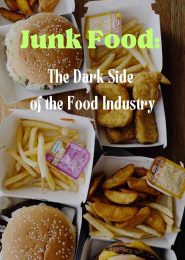Seeds of Death (2012)
Seeds of Death: Unveiling the Lies of GMOs is a compelling documentary that pulls back the curtain on genetically modified organisms (GMOs) and their impact on public health. Directed by Gary Null and Richard Polonetsky, this film features a lineup of eminent scientists, physicians, professors, attorneys, and environmental activists who expose the alarming truth surrounding GMOs in our food supply.
Here are the key insights from the documentary:
- The GMO Controversy:
- The film dives headfirst into the controversy surrounding GMOs. It reveals how these genetically altered crops have infiltrated our food system without adequate scrutiny.
- Leading experts discuss the potential dangers of GMOs, including their impact on human health and the environment.
- Corruption and Deception:
- “Seeds of Death” uncovers the web of corruption surrounding GMOs. It sheds light on how powerful interests manipulate information, suppress dissent, and deceive the public.
- The film emphasizes that corporate agendas often take precedence over public well-being.
- Health Risks:
- Scientists featured in the documentary discuss the potential health risks associated with GMO consumption. These risks include allergies, unintended gene transfer, and long-term effects.
- The film urges viewers to question the safety of GMOs and demand transparency in food labeling.
- Global Implications:
- The documentary transcends borders, highlighting the global impact of GMOs. It underscores that this issue affects people worldwide, regardless of nationality or socioeconomic status.
- The film encourages viewers to recognize the interconnectedness of our food system and advocate for responsible agricultural practices.
- Personal Stories:
- The film weaves in personal narratives, such as those of individuals who have experienced health challenges related to GMOs.
- These stories serve as a wake-up call, urging us to consider the long-term consequences of our food choices.
In summary, Seeds of Death: Unveiling the Lies of GMOs is a wake-up call for informed consumerism. It prompts us to question the food we eat, demand transparency, and advocate for a healthier, more sustainable future.




